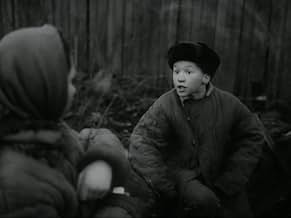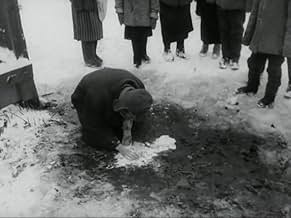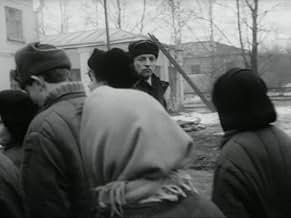I have seen "Don't Move, Die and Rise Again" described as one of the grimmest studies of childhood on film. Superficially, yes, but the young hero, Valerka, has a resilience that allows him to cope with most of the situations in which he finds himself. Children in Dickens or the Brontes often suffer far more. But, having said that, the setting of the first three-quarters of the film is almost unbelievably drab and depressing. We are in a mining community situated not far from Vladivostok during the season where snow is melting into slush and mud; the time, shortly after the end of World War II. Valerka, who lives with his unmarried mother, is an extremely streetwise early teenager. He makes what little money he can by brewing cups of tea for miners coming off their shifts and vies with Galia, another girl tea vendor in claims for making it from the freshest water. Their rivalry turns into a camaraderie which is developed and sustained throughout a film that is otherwise rather short on character interest. For the rest, it is the spirit of place that predominates, with a stark naturalism that reminds me at times of the "Bill Douglas Trilogy" with its equally uncompromising depiction of an unlovely semi-industrial wasteland. Only in the last half-hour is there much action. After being responsible for a minor train derailment, Valerka flees his home only to get involved with a gang of thieves. The ending is tragic but at the same time rather inconclusive. By having a discursive opening and middle and an action packed conclusion, the film suffers from erratic pacing. I also found it much less involving and consequently less moving that its material would suggest. Just another piece of Russian misery, then? Not quite. It contains several uneasy images that one recalls long after it is over, several of amputees and an extraordinary closeup of a passer by in a quiet street, smiling to reveal rows of grotesque metallic crowns. Above all "Don't Move, Die and Rise Again" has the virtue of memorability.













